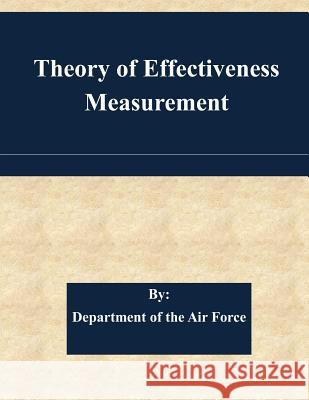Theory of Effectiveness Measurement » książka
Theory of Effectiveness Measurement
ISBN-13: 9781508924227 / Angielski / Miękka / 2015 / 182 str.
Effectiveness measures provide decision makers feedback on the impact of deliberate actions and affect critical issues such as allocation of scarce resources, as well as whether to maintain or change existing strategy. Currently, however, there is no formal foundation for formulating effectiveness measures. This research presents a new framework for effectiveness measurement from both a theoretical and practical view. First, accepted effects-based principles, as well as fundamental measurement concepts are combined into a general, domain independent, effectiveness measurement methodology. This is accomplished by defining effectiveness measurement as the difference, or conceptual distance from a given system state to some reference system state (e.g. desired end-state). Then, by developing system attribute measures such that they yield a system state-space that can be characterized as a metric space, differences in system states relative to the reference state can be gauged over time, yielding a generalized, axiomatic definition of effectiveness measurement. The effectiveness measurement framework is then extended to mitigate the influence of measurement error and uncertainty by employing Kalman filtering techniques. Finally, the pragmatic nature of the approach is illustrated by measuring the effectiveness of a notional, security force response strategy in a scenario involving a terrorist attack on a United States Air Force base.
Zawartość książki może nie spełniać oczekiwań – reklamacje nie obejmują treści, która mogła nie być redakcyjnie ani merytorycznie opracowana.











